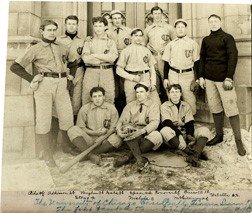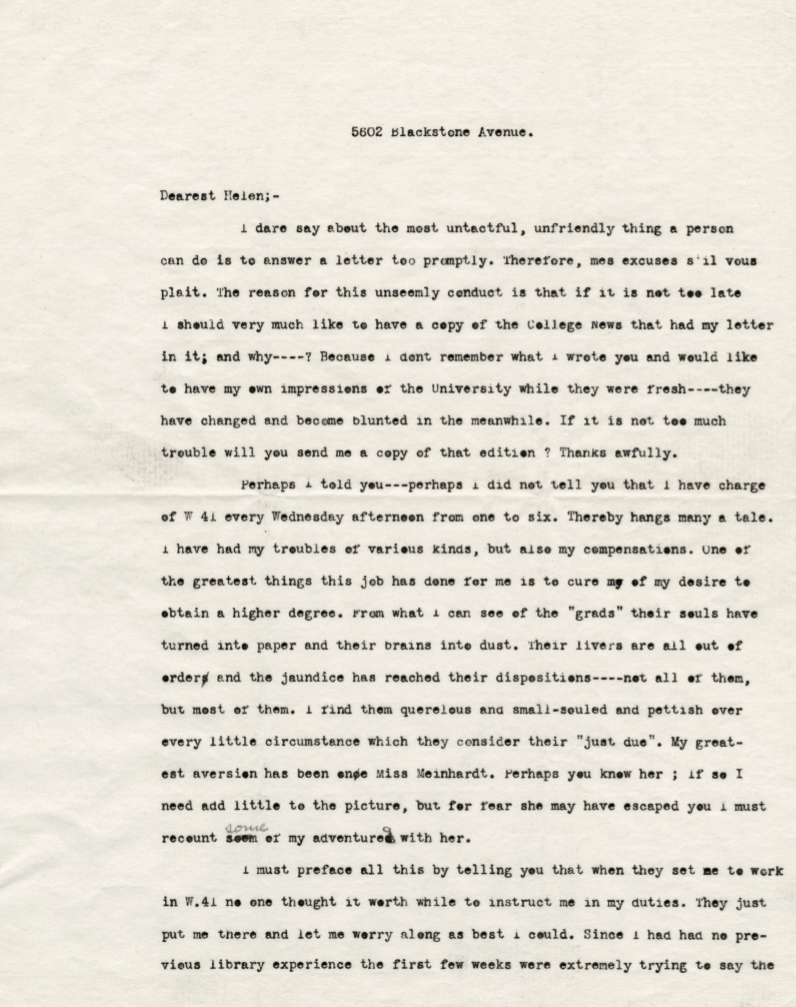Helen Drew
Helen Drew received her master’s degree in English in 1915 from the University of Chicago. Her correspondence consists of 37 letters which Drew received from a group of her friends, mainly graduate students with whom she had studied in the English Department at the University during and shortly after the First World War. Drew’s correspondents primarily describe day-to-day occurrences: Irene Hyman's trials working in Harper Library, news and chatter about friends and family--engagements, illnesses and daily activities.
Among the correspondents are faculty member Edith Foster Flint and fellow students Fred B. Millet and Frank O'Hara. Others mentioned in the correspondence include Howard Mumford Jones, Robert Morss Lovett, Rollin D. Salisbury (Drew's uncle), and Elizabeth Wallace.
The writings of Drew and her friends were not limited to their rather grim surroundings. A letter written by Irene Hyman to Helen Drew informs us about work gossip and a tenuous relationship between co-workers--a relatable topic regardless of the era.
The Helen Drew Correspondence may be viewed online or in the Special Collections Research Center in the University of Chicago Library.
Special Collections Research Center, University of Chicago Library.
Read the full letter in Box 1, Folder 2 of the Helen Drew Correspondence.
In other letters, Irene describes the impact of the war on the University. In October 1918, she wrote:
College! God save the mark, you would not recognize. The old air is gone--gone completely! There is a spirit of unrest, an air of hurry and hustle and confusion worse confounded. No one seems to have their bearings, professors or students. Classes are all mixed up ... The campus itself is different--groups of soldiers drilling--bugle calls ringing at odd times.
As an example of the effect of the military on the classroom, Mrs. Hyman cited English I: "No long themes, no card notes, much more oral work and the topics assigned are all work topics. ... Instructors will have to give lessons in pronunciation of Eng[lish]; that to be done in the form of commands--such as `Present-arms! Company Right Face!' etc." Taken as a whole, these letters provide personal and often intimate glimpses into the lives of a group of friends at the University against the backdrop of the First World War.


